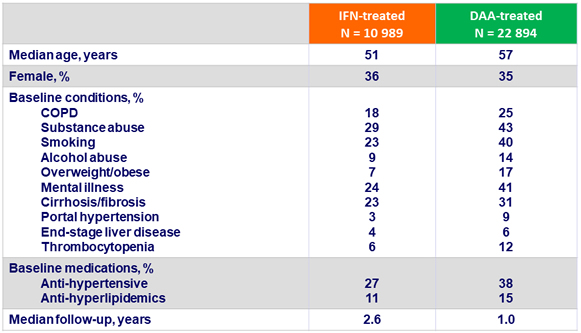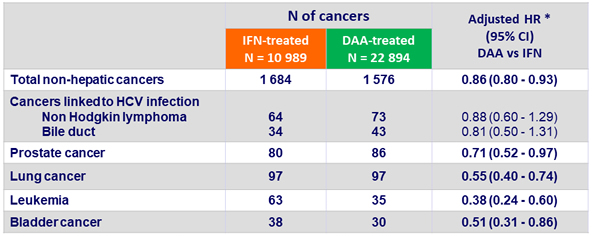Risk of non-hepatic cancer after HCV treatment: DAA vs IFN
Chokkalingam AP, EASL 2018, Abs. PS-155
Design
- US administrative claim database, Jan 2006-Mar 2017,
HCV adults with no prior cancer
- 10 989 exposed to IFN before May 2011, follow-up to Nov 2013
- 22 894 exposed to DAA starting Dec 2013, follow-up to Mar 2017
- Outcome: cancer
- Absolute rates (95% CI) of cancer per 100 person-years
- Adjusted hazard ratios estimating cancer risk associated with DAA compared with IFN
- Cox proportional hazards adjusting for baseline covariates
- Weighting based on treatment propensity scores
Baseline characteristics

Risk of cancers

No significant difference for other major cancers (colorectal, breast (female), esophageal, pancreatic)
* Adjusted for age, sex, drug abuse, acohol abuse, smoking, cirrhosis/fibrosis, anemia, overweight/obesity, coronary atheroscleosis , HBV infection, mental illness, alcoholic liver damage, portage hypertension, ESLD, thrombocytopenia, and use of chemotherapy, immunomodulators and aspirin
Conclusions
- DAA exposure was associated with a lower risk of cancer relative to IFN exposure
- For total non-hepatic cancers
- For leukemia, prostate, bladder and lung cancers
- Hypothesis
- May reflect the long-term impact of improved SVR with DAA at a population level




